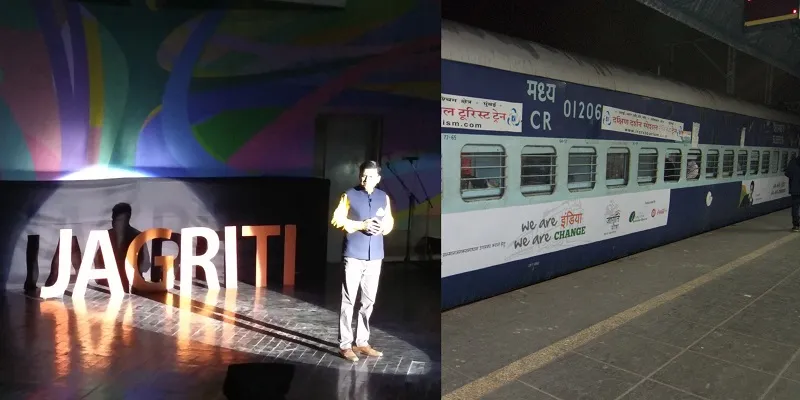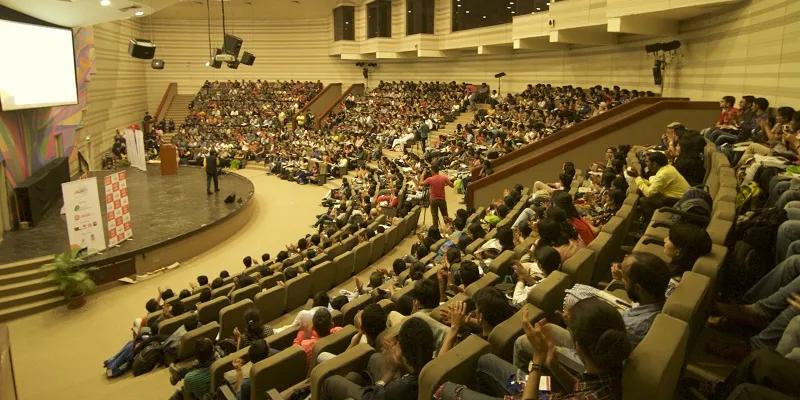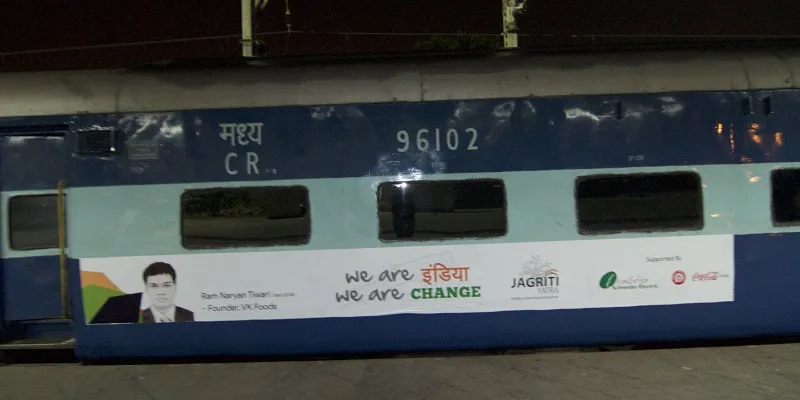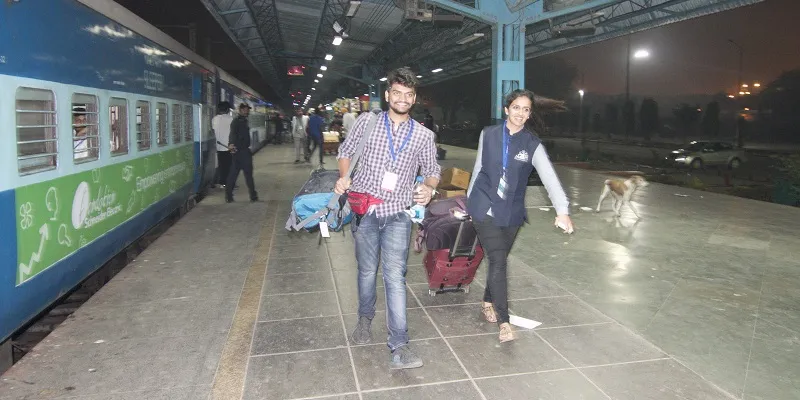What’s new for this year’s Jagriti Yatra, the world’s longest train journey dedicated to social entrepreneurship?
Following the footsteps of Mahatma Gandhi, who had embarked upon a journey across India almost a century ago, the Jagriti Yatra, an ambitious 8,000 Km train journey spread across 15 days, aims to build a new India through social entrepreneurship.

The ninth edition of the Jagriti Yatra commenced on Christmas Eve in Mumbai this year. The 480 ‘yatris’ travelling across the length and breadth of India were selected from among 12,000 registrations and 2,500 applications.
The participants come from across 27 states in India, and 46 other countries. 33 percent of these yatris come from rural India, and 36 percent from semi-urban India. Approximately 40 percent of the ‘yatris’ are women.
The yatris are accompanied by mentors, who will guide and help them understand the needs and opportunities in different sectors, including agriculture, healthcare, energy, education, water and sanitation, manufacturing, arts, sports, and culture. According to Shashank Mani Tripathi, Chairman, Jagriti Sewa Sansthan,
"The mission of building India through enterprise has never been more relevant and possessed of more standing than it is today. As we near the 70th anniversary of India's independence, there is urgency to scale up our movement.”

An array of events planned
Over its course, the train will stop at 12 cities, towns and villages of India - Mumbai, Hubli, Bengaluru, Madurai, Chennai, Visakhapatnam, Bhubaneshwar, Nalanda, Deoria, Delhi, Tilonia and Ahmedabad.
During their visits, the yatris will meet and interact with role models from the social sector, including Anshu Gupta from Goonj and Joe Madiath from Gram Vikas, among others. Through panel discussions and one-on-one interactions, the participants will be exposed to the problems of India’s grassroots that need to be addressed. Shashank adds,
“We are a young nation, and currently have the demographic advantage. The next 20 years are critical for India’s progress.”
While on the train, the yatris will also participate in ‘Biz Gyan Tree’ (BGT), a business planning exercise where they will collaborate and work with experts who will help them understand the intricacies of running businesses at the grassroots.
The participants will present their business plans at Barpar Village, near Deoria, Uttar Pradesh before a jury of experts. The selected teams will participate in a 10-day residential programme in Deoria, to be organised during February-March next year.
For the first time, Jagriti is also hosting a Jagriti Enterprise Mela (JEM) this year, where 65 enterprises working in the social sector will showcase their work. The participants will be attending the JEM on 27 December, during their visit to Bengaluru.

A movement in the making
With an alumni of over 3,700 men and women, which will grow to become 4,200 this year, Jagriti has built a large network of concerned individuals. Of these, 600 past yatris have started their own enterprises, often through collaboration with each other. Ashutosh Kumar, Executive Director of Jagriti, says,
“These leaders, spread across the length and breadth of the country, have begun a journey of transforming the 'Middle India' - Tier 2 and 3 districts of India, by collaborating amongst themselves. The network of these nation-builders is the real asset that Jagriti has today.”

An incubator that goes beyond metros
Jagriti also recently launched the concept and architecture of the Jagriti Enterprise Centre, a campus and a regional impact centre in the Tier 2 and 3 districts of India that aims to help enterprises through market linkages, enterprise training, mentorship and access to funds.
Jagriti Enterprise Centre has already started operations in the Purvanchal region of Uttar Pradesh, which comprises of 28 districts. The pilot project is currently incubating six startups, the impact of which can already be seen on the local economy. Pooja Shahi, a young woman from Deoria who shifted to Mumbai under the guidance of Jagriti and started Deoria Designs, a social enterprise incubated by Jagriti Enterprise Centre, says,
“Jagriti Yatra changed my life. Only a Jagriti Centre in every village can find all of the Poojas in every village, support them, train them, and change their lives, the way they did mine. Through Jagriti connections, I found a business partner in Mumbai who brought in much-needed resources and network, and allowed me to start a company of my own today. What Jagriti is doing today for the people of Purvanchal, nobody has ever done before.”







